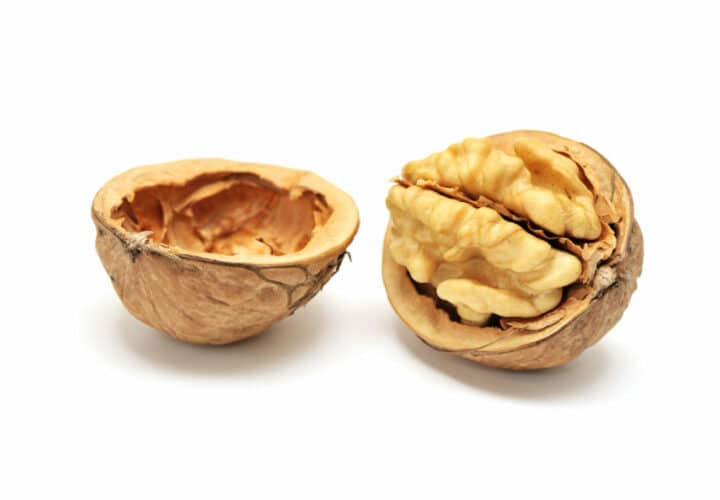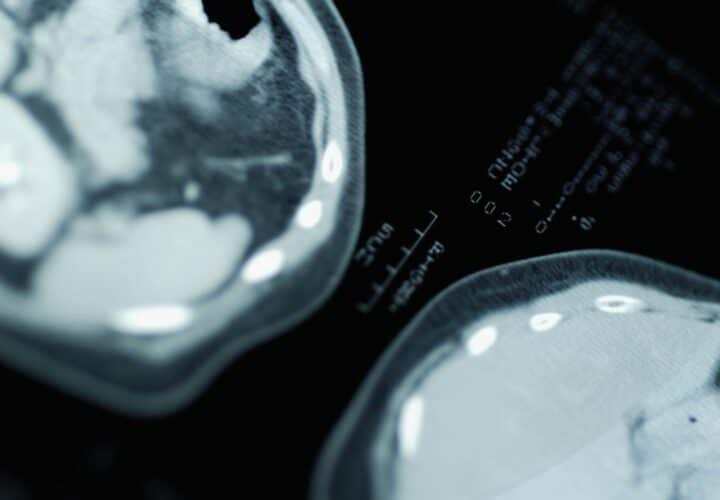When we open the pantry or fridge for a snack, we usually mindlessly grab whatever is easy and visible. But reaching for nuts over, say, chips or cookies, could result in a big brain payoff, according to new research from the University of South Australia.
According to a report published in The Journal of Nutrition, Health and Aging, older adults could benefit from high nut consumption.
How Many Nuts Are Necessary for Improved Brain Health?
Researchers studied almost 5,000 Chinese adults over the age of 55 over 22 years. They found that those who ate over 10 grams of nuts per day—the equivalent of about 9 almonds—had better mental functioning, including improved thinking, reasoning and memory.
Researchers said information like this could provide key health insights for an aging population facing brain diseases like dementia, which has no cure.
Why Diet Is Currently the Best Weapon Against Dementia
“Population aging is one of the most substantial challenges of the twenty-first century. Not only are people living longer, but as they age, they require additional health support which is placing unprecedented pressure on aged-care and health services,” said Dr. Ming Li, lead researcher.
“In China, this is a massive issue, as the population is aging far more rapidly than almost any other country in the world,” he added. By 2050, it’s predicted that 330 million Chinese will be over age 65, and 90.4 million will be over age 80, representing the world’s largest population of this most elderly age group. Worldwide, the number of people aged 60 years and older will outnumber children younger than five years old by 2020, according to the World Health Organization.
“Improved and preventative health care—including dietary modifications—can help address the challenges that an aging population presents,” said Li.
One of those diet modifications, it turns out, could be adding a daily handful of nuts to your diet.
“By eating more than 10 grams (or two teaspoons) of nuts per day, older people could improve their cognitive function by up to 60 percent compared to those not eating nuts, effectively warding off what would normally be experienced as a natural two-year cognition decline,” said Li.
Why Nuts Are Good for Brain Health
The data was extracted from the China Health Nutrition Survey and found that 17 percent of participants ate nuts—peanuts, for the most part—on the daily. Peanuts have specific anti-inflammatory and antioxidant effects which can alleviate and reduce cognitive decline, according to the researchers.
“Nuts are known to be high in healthy fats, protein and fiber with nutritional properties that can lower cholesterol and improve cognitive health,” said Li.
Adding brain-healthy elements to diet may be one way that the risk for dementia may be lowered in the absence of a treatment or cure.
“As people age, they naturally experience changes to conceptual reasoning, memory, and processing speed. This is all part of the normal aging process. But age is also the strongest known risk factor for cognitive disease,” said Li. “If we can find ways to help older people retain their cognitive health and independence for longer—even by modifying their diet—then this absolutely worth the effort.”
[ Next: Low-Protein, High-Carb Diet Could Help Stave Off Dementia ]




Please keep me informed on the lastest info on Alzheimer’s. My Mom had it and so I am constantly reading everything that I can find on the topic..
Hi Loretta,
Have you signed up for our newsletter? If not, you can do so at https://www.beingpatient.com. Simply put your name in the yellow email sign up box. We send weekly highlights as well as opportunities to connect directly with experts. I hope it helps!
I’d like to sign up for your news letter, I have a history of Alzheimer’s in my family. I am 68 and have been diagnosed with MCI,
I eat healthy fresh food…veggies, fruit, salmon, occasionally. lean beef.
Hello Linda, you can sign up for our newsletter right from our home page. ~ Thank you